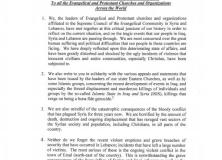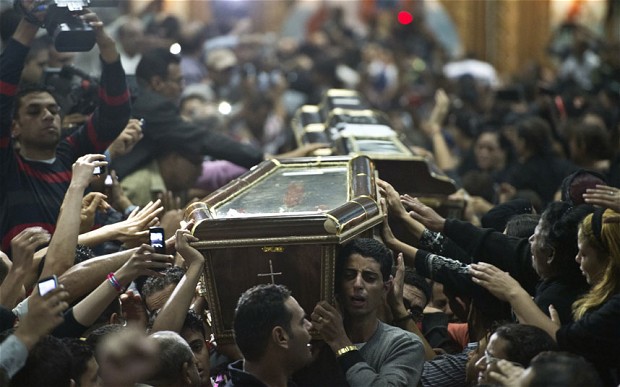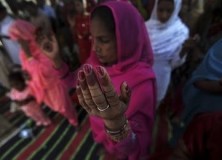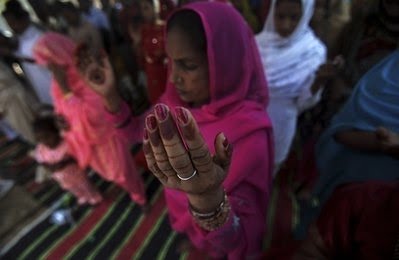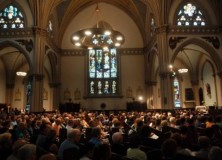 That’s the title of a new book written by Joani Schultz and Thom Schultz. And it’s a question those leaving are more than ready to answer. The problem is, few insiders are listening.
That’s the title of a new book written by Joani Schultz and Thom Schultz. And it’s a question those leaving are more than ready to answer. The problem is, few insiders are listening.
And, of course, that IS the problem.
In a recent issue of Christianity Today, for example, Ed Stetzer wrote an article entitled,“The State of the Church in America: Hint: It’s Not Dying.” He states: “The church is not dying… yes… in a transition… but transitioning is not the same as dying.”
[Steve McSwain, The Huffington Post, Oct 14, 2013] Really? What cartoons have you been watching?
Clearly, the Church is dying. Do your research, Mr. Stetzer. According to the Hartford Institute of Religion Research, more than 40 percent of Americans “say” they go to church weekly. As it turns out, however, less than 20 percent are actually in church. In other words, more than 80 percent of Americans are finding more fulfilling things to do on weekends.
Furthermore, somewhere between 4,000 and 7,000 churches close their doors every year. Southern Baptist researcher, Thom Rainer, in a recent article entitled “13 Issues for Churches in 2013” puts the estimate higher. He says between 8,000 and 10,000 churches will likely close this year.
Between the years 2010 and 2012, more than half of all churches in America added not one new member. Each year, nearly 3 million more previous churchgoers enter the ranks of the “religiously unaffiliated.”
Churches aren’t dying?
No, of course not. Churches will always be here. But you can be sure, churches are going through more than a mere “transition.” I study these things carefully. I counsel church leaders within every denomination in America, having crisscrossed this country for nearly two decades counseling congregations as small as two hundred in attendance to churches averaging nearly 20,000 in weekly attendance. As I see it, there are “7” changing trends impacting church-going in America. In this first of two articles, I’ll address the “7” trends impacting church-going. In the second part, I’ll offer several best practices that, as I see it, might reverse the trends contributing to the decline.
Trends Impacting Church Decline:
1. The demographic remapping of America.
Whites are the majority today at 64 percent. In 30 to 40 years, they will be the minority. One in every three people you meet on the street in three to four decades will be of Hispanic origin. In other words, if you are not reaching Hispanics today, your church’s shelf life is already in question.
Furthermore, America is aging. Go into almost any traditional, mainline church in America, observe the attendees and you’ll quickly see a disproportionate number of gray-headed folks in comparison to all the others. According to Pew Research, every day for the next 16 years, 10,000 new baby boomers will enter retirement. If you cannot see where this is headed, my friend, there is not much you can see.
2. Technology.
Technology is changing everything we do, including how we “do” church. Yet, there are scores of churches that are still operating in the age of the Industrial Revolution. Instead of embracing the technology and adapting their worship experiences to include the technology, scores of traditional churches, mainline Protestant, and almost all Catholic churches do not utilize the very instruments that, without which, few Millennials would know how to communicate or interact.
However, when I suggest to pastors and priests, as I frequently do, that they should use social media and, even in worship, they should, for example, right smack in the middle of a sermon, ask the youth and young adults to text their questions about the sermon’s topic… that you’ll retrieve them on your smartphone… and, before dismissing, answer the three best questions about today’s sermon, most of the ministers look at me as if I’ve lost my mind. What they should be more concerned about is why the Millennials have little or no interest in what they have to say.
3. Leadership Crisis
Enough has been written about this in the past. But you can be sure, clergy abuse, the cover-up by the Church, and fundamentalist preachers and congregations have been driving people away from the Church, and continue to drive people away, faster than any other causes combined.
4. Competition
People have more choices on weekends than simply going to church. Further, the feelings of shame and guilt many people used to feel and church leaders used to promote for not attending church every week is gone.
There are still those, however, who want to categorize Christians as an explanation for the church’s decline in attendance in a futile effort to make things not look so bad. But this, too, is the illusion that many church leaders and denominational executives are perpetrating but nobody is paying attention. They are just too blind to see that.
For example, in the very same article I referenced above, Ed Stetzer has concocted three different categories of Christians he conveniently thinks explains the dire situation faced by the church.
He says there is a kind of “classification” system between those who “profess Christianity” as their faith choice.
- First, he says there are cultural Christians or those who “believe” themselves to be Christians simply because their culture says they are. But, clearly, he implies they are not.
- Second, he classifies a group of congregational Christians which he says are not much better off than the first misguided group, except that these are loosely connected to the church.
- Third, he notes the third group, which no doubt he ranks as “his” group, that he calls the convictional Christians. These are the true Christians who are actually living their faith, according to Ed Stetzer.
I’ve got news for you, Mr. Stetzer, there are scores of people who have left the church, not because they possess some phony or inferior faith, as you would like to believe, but precisely because they do not want to be around judgmental people like you. They have left, not to abandon their faith, but precisely because they wish to preserve it. You would be much better off to leave the judgment-making to Someone infinitely more qualified to do so (Matt. 7:1).
5. Religious Pluralism
Speaking of competition, there is a fifth trend impacting the decline of the church in America. People have more choices today. Credit this to the social changes in the ’60s, to the Internet, to the influx of immigrants and minorities, to whatever you’d like, but the fact is, people today meet other people today of entirely different faith traditions and, if they are discovering anything at all, it is that there are scores of people who live as much, if not more, like Christ than many of the Christians they used to sit beside in church.
The diversity of this nation is only going to expand. Which is why, you might debate some of Diana Eck’s conclusions, the Harvard scholar and researcher, but her basic premise in correctly stated in the title of her book, A New Religious America: How a ‘Christian Country’ Has Become the World’s Most Religiously Diverse Nation.
6. The “Contemporary” Worship Experience
This, too, has contributed to the decline of the church. It’s been the trend in the last couple of decades for traditional, mainline churches to pretend to be something they’re not. Many of them have experimented with praise bands, the installation of screens, praise music, leisure dress on the platform, and… well… you know how well that’s been received.
Frankly, it has largely proven to be a fatal mistake. Of course, there are exceptions to this everywhere and especially in those churches where there is an un-traditional look already, staging, an amphitheater-style seating, as well as the budget to hire the finest musicians to perform for worship. In traditional, mainline churches, however, trying to make a stained-glass atmosphere pass as the contemporary worship place has met with about as much success as a karaoke singer auditioning for The X Factor.
7. Phony Advertising
There’s one more trend I’ll mention I believe is having devastating impact on the Church and most certainly contributing to its decline. You cannot tell Millennials that your church welcomes everybody — that all can come to Jesus — and then, when they come, what they find are few mixed races or no mixed couples.
You cannot say, “Everybody is welcome here if, by that, you really mean, so long as you’re like the rest of us, straight and in a traditional family.”
In the words of Rachel Evans, a millennial herself and a blogger for CNN, “Having been advertised to our whole lives, we millennials have highly sensitive BS meters.”
In other words, cut the bull. If everyone is not really equally welcomed to the table at your church, stop advertising that you are open to anyone. That is not only a lie, but Millennials can see through the phony façade as clearly as an astronomer, looking through the Hubble telescope, can see the infinity of space.
There are other trends. These are just a few of them. In Part Two, I’ll offer some “best practices” I think the Church should seriously consider if it ever plans to get real and honest about its future and its influence on culture and society.
